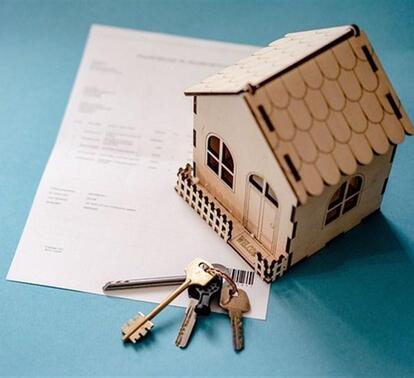What are the steps to claim a legal mortgage?
You may have heard of legal construction hypothecs before, but do you really know what they entail? This is a formidable weapon that the law places at the disposal of contractors to guarantee payment for their work. Understanding how this security works is essential, whether you are an entrepreneur seeking to enforce your rights or a landlord facing a legal mortgage claim.
If you are an entrepreneur and want to assert a legal hypothec in the event of non-payment, it is crucial to follow a precise procedure provided for by law. This will allow you to protect your rights and guarantee the payment of your claim. It is recommended that you hire a lawyer in construction law to accompany you throughout the process and ensure that all steps are followed.
1. Termination of contract
Denunciation of the contract with the owner is a responsibility that falls exclusively to contractors and workers who have not directly concluded a contract with the owner, in particular subcontractors. Given the absence of a direct contract between them, the denunciation makes it possible to inform the owner of the existence of the contract and to take the necessary measures, such as the corresponding deductions.
It is important that the sub-contractor who wishes to denounce the contract does so in writing, ensuring that the owner is aware of it and can prove this transmission in the event of a subsequent dispute.

2. Registration of the mortgage conservation notice
The contractor who wishes to exercise his right to the legal hypothec must publish a notice of hypothec within 30 days following the date of completion of the work. The concept of work completion may be subject to interpretation, particularly in situations where several trades follow one another on the site.
However, it is generally considered that the completion of the works corresponds to the complete realization of the works in accordance with the plans and specifications. For example, if an excavator dug the land for the foundations in "Week 1" of the project, they will have 30 days after construction of the house is complete to register their Notice of Legal Mortgage. Thus, there is only one date of completion of the work which is common to all the contractors and sub-contractors present on the site.
3. Transmission of mortgage exercise notice
Once the notice of mortgage has been published within 30 days, the contractor has a period of 6 months from the date of completion of the work to initiate an action for mortgage recovery. It is important to note that if no notice is sent within this 6 month period, the legal hypothec will be extinguished. Only the sending of prior notice to the owner within the specified period will maintain the existence of the mortgage.
Situation
Take the example of a contractor who completed renovation work on a house on January 1, 2023. According to the law, he has 30 days from this date to publish a notice of legal hypothec, which must be done no later than January 31, 2023.
Once the notice has been published, the contractor has a period of 6 months from the date of completion of the work, i.e. until July 1, 2023, to initiate an action for mortgage recovery.
If the contractor does not send notice to the owner before July 1, 2023, the legal hypothec will be extinguished and he will lose his right of recovery on the property.
However, if he sends a valid notice to the owner before the deadline, the legal hypothec will remain in force and the contractor will be able to pursue the collection of his debt in accordance with the law.
It is therefore crucial for the entrepreneur to respect these deadlines and to follow the necessary procedures to protect his rights in matters of legal hypothec.
4. Exercise of hypothecary recourse
Now that the publication, notice and registration deadlines have been met, the contractor is able to exercise its hypothecary recourses against the owner, subject to any possible legal challenges. Within the framework of these recourses, the contractor has various options provided for by the Civil Code of Québec in terms of hypothecary rights, such as:
- Take the building in payment of the debt: The entrepreneur can ask that the building be returned to his possession to compensate for the unpaid amount.
- Sell the building in court: The entrepreneur can take legal action to obtain the forced sale of the building and thus recover the amount due.
- Sale of the building by the creditor: The entrepreneur can choose to sell the building himself in order to recover the amount due.
- Take possession and administer the building: The contractor may ask to take possession of the building to ensure its administration while waiting for the settlement of its claim.
As a contractor seeking to exercise a remedy under a legal hypothec, it is strongly recommended to be accompanied by a lawyer in construction law. This will maximize the chances of getting fair payment for work done but not paid for.
